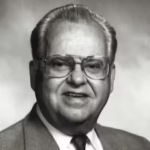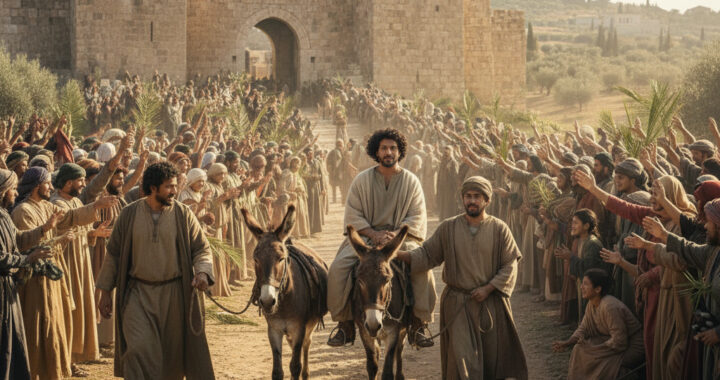Reader’s Digest asked this question in its August 1992 issue and concluded, “Christmas, once a purely religious holiday, now mostly means Santa Claus and stockings, sleigh bells and candy canes—and seems to have little or nothing to do with the birth of Christ.”
Schools are forbidden to celebrate the birth of Christ. Community property may not be used for scenes of Christ’s birth. Businesses make it their greatest profit period for the year. Churches have downgraded it in their program to a musical and a sermon or two. Families are too pressured to take the time for any serious celebration. Some believers are even suggesting that to celebrate Christmas is to participate in a pagan ritual or a Romanist mass. All of this raises serious questions for us.
Did the early church commemorate the birth of Christ? Are there any Biblical commands for remembering His birth like we have for His death? Do we even know with any certainty when Christ was born? What positive reasons can be given for celebrating Christ’s birth?
Whether or not the early church celebrated Christ’s birth is difficult to substantiate. None of the church epistles or the book of Acts record observances of His birth. Church historians give AD 336 as the earliest known date for commemorating Christ’s birth by the Roman church. The term, “Christmas,” is a derivation of Christ and Mass. Augustine wrote that by the 5th century the western churches were celebrating Christmas. Special religious ceremonies were used to mark the occasion in the early church but gradually it began to assimilate pagan practices into this event. One example cited in Zondervan’s Pictorial Encyclopedia (p. 804) is the Feast of Saturnalia in Rome. This feast was celebrated from December 17–24 and was marked by parties and gift giving.
It would be helpful if commands for observing Christ’s birth on a regular basis were as clear as those related to remembering His death, resurrection and return (1 Corinthians 11:20–34). But that is not the case. Celebrating Christ’s birth is not commanded by Christ or any of the New Testament writers. Where then did the celebration of His birth on December 25th come from?
Traditionally the date for Christ’s birth has been recognized as December 25th. Edersheim in, The Life and Times of Jesus The Messiah, says, “There is no adequate reason for questioning the historical accuracy of this date. The objections generally made, rest on grounds which seems to be historically untenable.” (p. 187, Footnote #3) The Scripture is of little help on this subject. In all probability the late December or early January dating of Christ’s birth is accurate.
The more significant question of whether or not believer should celebrate Christ’s birth, seems to be legitimate at this point. Paganism has corrupted it. Romanism instituted it. The Scriptures do not clearly command it. The world has commercialized it. Are there any good reasons for making much of Christ’s birth?
1. Christ’s birth is given a prominent place in Old Testament prophecy as support for recognizing the promised Redeemer and Messiah of Israel. His nationality, tribe, and family are identified. The place and method of His birth is clearly stated. Christ’s birth is a prophetic even in God’s plan that He does not want His people or the world to miss.
2. The Gospels of Matthew and Luke give detailed accounts of Christ’s genealogy and birth events. (Matt. 1; Luke 2). God breaks open heaven. The angels sing the announcement. This is a significant event in God’s eternal plan of redemption. John wrote that the birth of Christ was the act of God becoming man to be man’s Savior from Sin. (John 1:14). Evidently the Gospel writers considered the birth of Christ important enough to give it a prominent place in their accounts of Christ.
3. The birth of Christ is an important subject in the preaching and writing in the New Testament. More than twenty references to Christ’s birth are given, and half of the epistles discuss it. John boldly declares that failure to confess that Christ is come in the flesh is antichrist! (1 John 4:2,3)
The reasons for upholding and honoring the birth of Christ are strongly compelling. If there is a problem in celebrating Christmas it is the methods employed not the celebrating itself. Let’s de-emphasize the partying and presents and begin to make it a holy day rather than just another holiday.
Make much of Christ’s birth in our preaching. Preach the prophecies are preparation for His coming. Preach the incarnation as the Creator God becoming one of His creatures, man, so that He can be the crucified redeemer from sin.
In our homes, make Christ’s birth central to our celebrating. Read the Scriptures and sing the songs of His birth. Why not a family love gift for Christ? Speak of all gift giving as a remembrance of God’s gift of His Son for us.
In our hearts, let us celebrate Christ’s birth by a time of commitment to greater love and service for Him. Christmas should be a time of spiritual revival when the sin of complacency is confessed and the sincere fire of zeal for Christ burns hot within us.
Yes, Christmas should be celebrated. Celebrated with the joy of adoring the altogether lovely One, exalting the Eternal One, honoring the perfectly Holy One, Christ Jesus the Lord!

Dr. Elvin K. Mattison
Dr. Elvin K. Mattison (Ph.D., Wayne State University) was a distinguished pastor, educator, and theologian with a profound commitment to ministry and theological education. Dr. Mattison dedicated 22 years to pastoral ministry in Michigan and Connecticut before transitioning to academia. He served as a professor at institutions including Spurgeon Baptist Bible College in Mulberry, Florida; Northwestern Baptist Seminary in Tacoma, Washington; and Faith Baptist Bible College and Theological Seminary in Ankeny, Iowa.
His international influence extended through teaching pastors at the doctoral level in India and South Korea. Known for his beautiful Irish tenor voice, he recorded an album titled "Songs of the Savior." Dr. Mattison entered glory in 2004.

